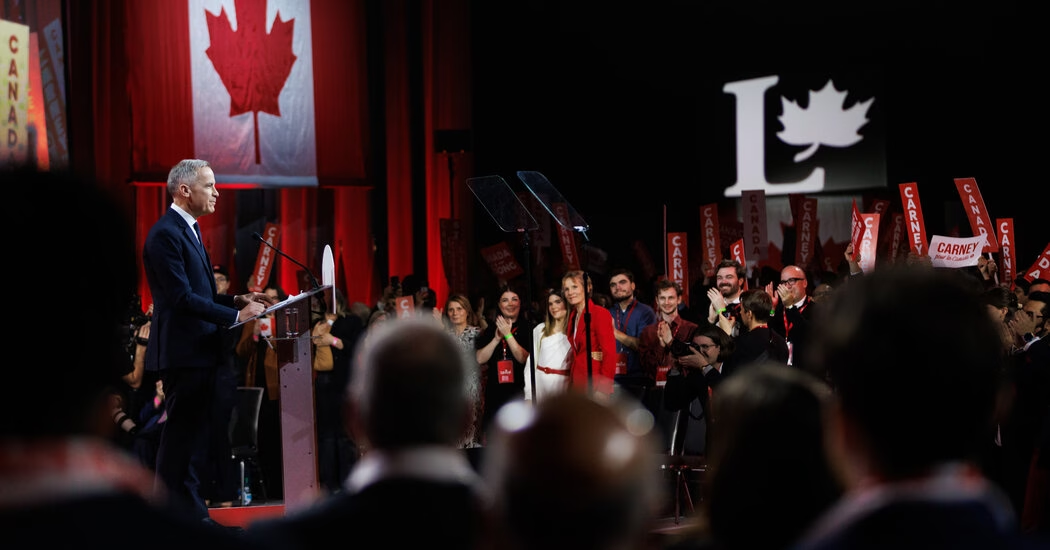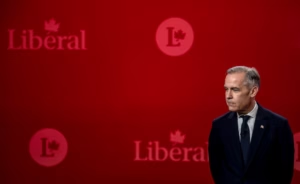In the midst of a historic shift in Canada’s relations with the United States, the Liberal Party of Canada has chosen Mark Carney, an unelected expert in financial markets, to succeed Justin Trudeau as the party’s leader and Prime Minister. Carney was victorious in a leadership contest against his friend and former Finance Minister, Chrystia Freeland, garnering a significant majority of the vote from Liberal Party members.
Addressing President Trump’s constant insinuations of making Canada the 51st state, Carney emphasized that America and Canada are distinct nations with no intention of merging. He pledged to robustly defend Canada’s interests in trade and other matters, likening the tenacity of Canadians in such disputes to their prowess in hockey.
Carney, a veteran in steering financial institutions through crises, including the global financial crisis of 2008 and the aftermath of Brexit, will face the immediate challenge of countering potential threats to Canada’s economy and sovereignty under the Trump administration. His lack of a parliamentary seat will necessitate a quick call for federal elections post his swearing-in, where he will face off against Pierre Poilievre, the Conservative Party leader.
Carney’s selection is viewed as pivotal for Canada, a leading member of NATO, the G7, and a vast nation, as the U.S. President’s intermittent threats and tariffs have weighed heavily on Canadian politics and economics. Trudeau, in his final speech to the Liberal Party convention, underscored the critical nature of this political moment and the fight for Canada’s values and sovereignty.
Public opinion polls indicate a preference for Carney over Poilievre, especially in terms of negotiating with Trump, with Carney being seen as someone who can stand up to the U.S. President. Carney also quickly took a campaign stance against Poilievre, criticizing his ideological alignment with Trump and lack of real-world experience.
The new Prime Minister will also inherit pressing domestic challenges, including an affordability crisis marked by high housing costs and living expenses, and debates over the use of Canada’s natural resources amidst an emphasis on green investment. Additionally, Carney will need to navigate the complex issue of immigration, balancing historical openness with the current strains on the housing market and healthcare system caused by rapid temporary migration.
In his acceptance speech, Carney reaffirmed his commitment to the values and progressive ideals of the Liberal Party, even as he acknowledged his wealth and background in finance, solidifying his progressive credentials among the electorate.
Source: https://www.nytimes.com/2025/03/09/world/canada/mark-carney-liberal-election.html




